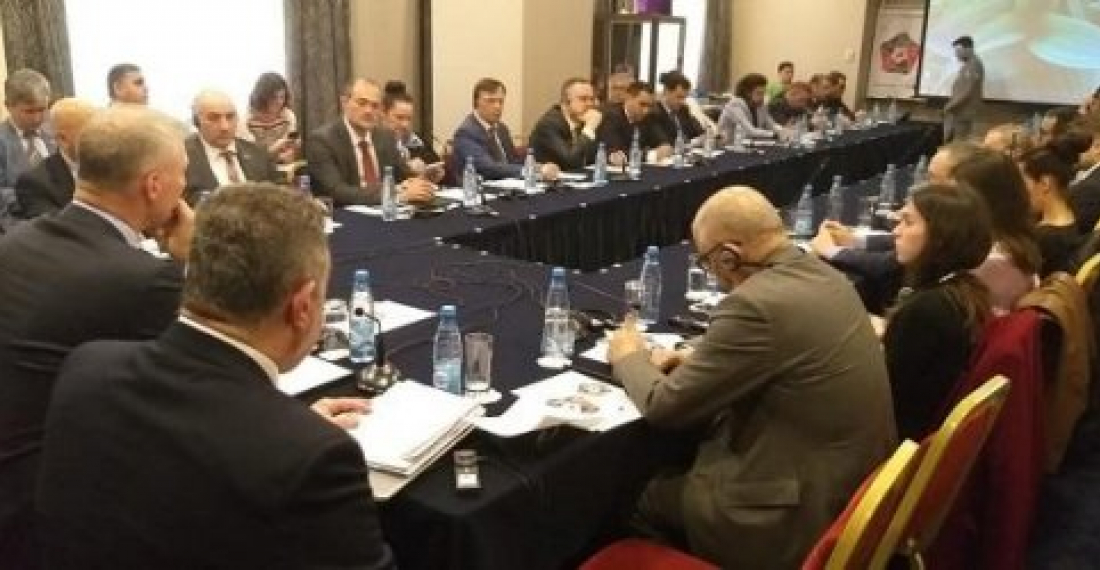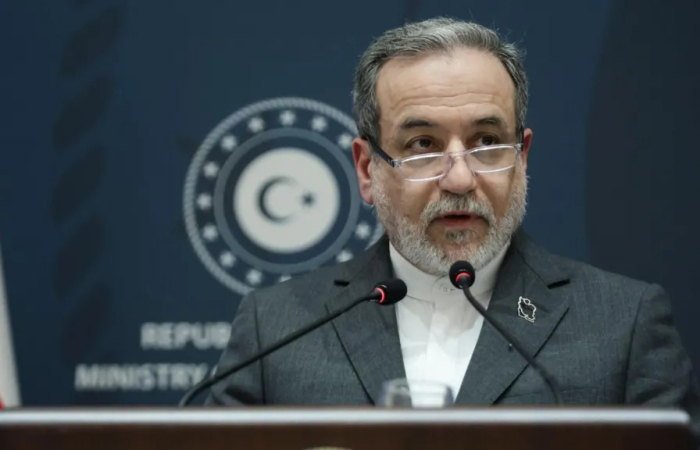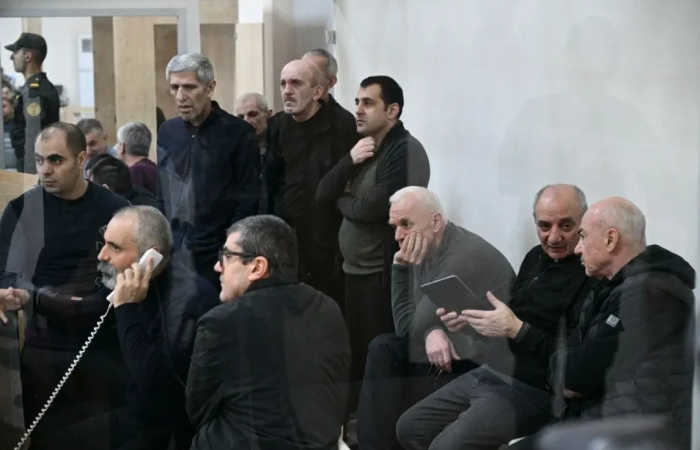Speaking at a round table meeting in Baku Dennis Sammut urged all stakeholders to step up their efforts to turn the aspirations expressed by the leadership of Armenia and Azerbaijan into tangible action
"It is not realistic to think that a comprehensive settlement of the Nagorno-Karabakh conflict is around the corner, but the situation today is very different from two years, or even one year ago. The leaders of Armenia and Azerbaijan have turned the page and set the course for serious peace negotiations. Now it is time for others to follow, and to ensure that the journey that has just started can be completed successfully and as soon as possible." This was stated by Dennis Sammut, Director of LINKS (Dialogue, Analysis and Research) in keynote remarks delivered at the opening of the Round Table Discussion ""Contextual Challenges to efforts to eliminate the scourge of landmines and unexploded ordinance in the South Caucasus" held in Baku on Monday, 8 April in the framework of the ongoing campaign LANDMINE FREE SOUTH CAUCASUS.
Dennis Sammut said that prime minister Pashinyan of Armenia and president Ilham Aliyev of Azerbaijan had met four time in the last year, three time informally, and in Vienna a few days ago in the framework of the mediation efforts of the OSCE Minsk Group. There have been, as a result, two statements issued jointly by the foreign ministers of Armenia and Azerbaijan on 16 January and 29 March. These two statements are the new page on which both sides now are officially. Dennis Sammut said that there are five takeways from these two statements - agreements on which the next steps must be build:
- Build and maintain an environment conducive to peace and to intensive, results oriented negotiations;
- Prepare the populations for peace;
- Develop measures in the humanitarian field;
- Strengthen the cease fire and improve the mechanism for direct communication;
- Take further and concrete and tangible steps in the negotiations process.
Dennis Sammut said that the peacebuilding community throughout the region must now step up its work to respond to this new reality which offers an opportunity to push the peace process forward. The journey has started, and the bus is ready to go. "We still see people hesitating and not wanting to join the bus; some are complaining that they are not sure what the bus final destination is; others are saying they prefer to walk, despite the fact that they know they may never reach their destination. But we must persuade as many people as possible to join the journey that Aliyev and Pashinyan have embarked upon", Dennis Sammut said. The speaker said that peace was not a luxury. Each country and each society needed peace, because without peace any victory and any achievement is meaningless.
Dennis Sammut proposed five practical measures that he said could bring the five takeways contained in the two statements of the foreign ministers to a tangible and operative level:
(1) To set up, under the auspices of the two leaders, a joint Armenian-Azerbaijani Public Council to start addressing the issue of preparing the populations for peace;
(2) Identify three areas of work in the humanitarian sphere communications can be taken, possibly co-ordinated through a working group under international auspices; One of these areas can be humanitarian demining where a lot can be achieved if the two sides agree even the most minimum level of co-ordination.
(3) Set up space for military to military contacts;
(4) Start expanding the negotiation process; Set up sub committees under the foreign ministers and the co-Chair countries representatives. Bring in other stakeholders and experts to help develop thinking.
(5) Agree a time table for future meetings - at leaders, foreign ministers and experts level, to ensure that the momentum is maintained and does not become the prisoner of chance.
Dennis Sammut said that the relative calm on the line of contact in the Karabakh conflict zone created an opportunity for more calm analysis. He urged his Azerbaijani audience to take time to listen to Armenian concerns, concerns that were often deeply embedded and widely felt. He said that in Yerevan he had urged his Armenian audience to do the same vis-à-vis the Azerbaijani side.
In conclusion, Dennis Sammut said that the problem of landmines in the South Caucasus is a stain on the whole region. A lot has been done, but a lot still needs to be done. Eradicating the remaining problem without progress in the conflict resolution process, especially on Nagorno-Karabakh was not realistic. This problem now symbolized a wider contradiction - a South Caucasus impatient to develop and reach the level of the most advanced countries, but held back by conflicts that no longer made sense. Dennis Sammut said that on Nagorno-Karabakh all stakeholders must now seize the moment and start the journey towards peace.
The round table meeting "Contextual Challenges to efforts to eliminate the scourge of landmines and unexploded ordinance in the South Caucasus" in the framework of the region-wide campaign LANDMINE FREE SOUTH CAUCASUS. At the start of his presentation Dennis Sammut said the campaign offered a good opportunity to remember the victims of landmines, and to extend to them and to their families strong solidarity. It was also an opportunity to salute those who risked their lives on a daily basis to clear landmines. He hailed the good work that the Azerbaijani mine clearance agency, ANAMA, was conducting in Azerbaijan, noting the seriousness and professionalism of the organization.
Source: commonspace.eu
photo: participants at the round table meeting "Contextual Challenges to efforts to eliminate the scourge of landmines and unexploded ordinance in the South Caucasus", Baku 8 April 2019







